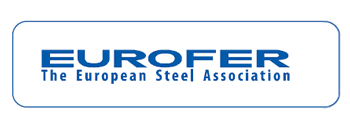Brussels, 20 June 2017 – The European Parliament’s International Trade Committee (INTA) is expected to vote today on the report on the new anti-dumping methodology by Rapporteur Salvatore Cicu MEP. The European Steel Association (EUROFER) calls on MEPs to support the report. The Committee report aims to ensure that the anti-dumping measures under the new ‘non-standard’ methodology remain effective.
 “The Commission proposal was based on the concept of ‘significant distortions’. However, the scope was incomplete and the procedure unclear. It is crucial to ensure legal certainty and provide clear processes, avoiding additional burdens on EU industry injured by dumping”, said Axel Eggert, Director General of EUROFER.
“The Commission proposal was based on the concept of ‘significant distortions’. However, the scope was incomplete and the procedure unclear. It is crucial to ensure legal certainty and provide clear processes, avoiding additional burdens on EU industry injured by dumping”, said Axel Eggert, Director General of EUROFER.
The draft INTA report better defines what ‘significant distortions’ actually are. Moreover, the report strengthens and solidifies the process for the deployment of this new, ‘non-standard’, anti-dumping methodology. This new methodology allows the Commission to use external, undistorted prices and costs for every factor of production.
“EUROFER supports the approach taken by MEPs. Dumping from third countries has undermined the European steel industry, causing massive job losses over the past few years. As proposed by the European Parliament, this new methodology will go a long way to ensuring that the impact of significant distortions in third countries are sufficiently accounted for when imposing anti-dumping measures”, said Mr Eggert.
About the European Steel Association (EUROFER)
EUROFER is located in Brussels and was founded in 1976. It represents the entirety of steel production in the European Union. EUROFER members are steel companies and national steel federations throughout the EU. The major steel companies and national steel federations in Switzerland and Turkey are associate members.
About the European steel industry
The European steel industry is a world leader in innovation and environmental sustainability. It has a turnover of around €170 billion and directly employs 320,000 highly-skilled people, producing on average 170 million tonnes of steel per year. More than 500 steel production sites across 22 EU Member States provide direct and indirect employment to millions more European citizens. Closely integrated with Europe’s manufacturing and construction industries, steel is the backbone for development, growth and employment in Europe.
Steel is the most versatile industrial material in the world. The thousands of different grades and types of steel developed by the industry make the modern world possible. Steel is 100% recyclable and therefore is a fundamental part of the circular economy. As a basic engineering material, steel is also an essential factor in the development and deployment of innovative, CO2-mitigating technologies, improving resource efficiency and fostering sustainable development in Europe.
